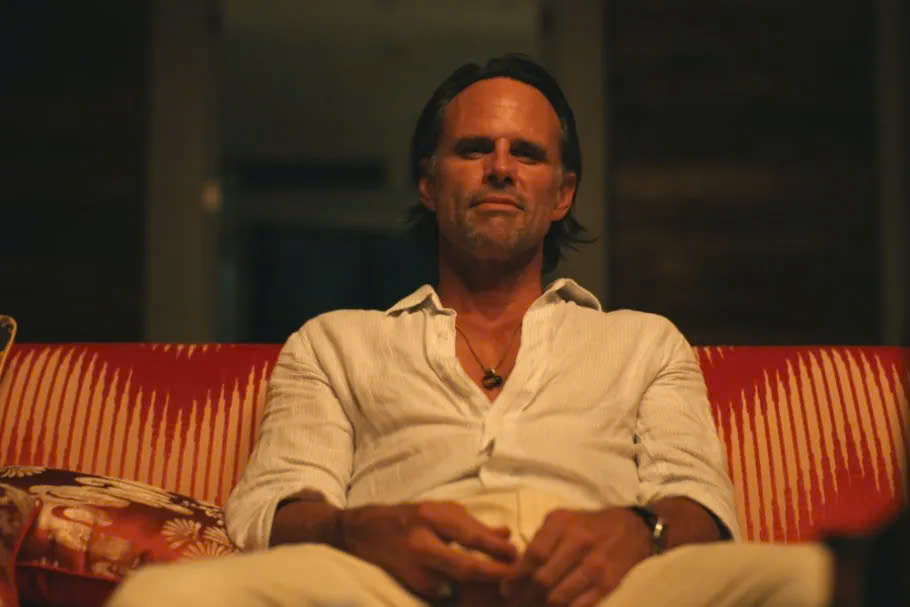Entertainment
Fate’s Cruel Embrace: “The White Lotus” Season 3 Finale Leaves Viewers Reeling in Thailand

Tragic Climax for Rick and Chelsea
At the heart of the season’s denouement was the volatile and ultimately heartbreaking saga of Rick (powerfully portrayed by Walton Goggins) and Chelsea (a nuanced and emotionally resonant performance by Aimee Lou Wood). Their already strained relationship hurtled towards a devastating climax in a confrontation with the seemingly innocuous resort manager, Jim Hollinger. In a twist of fate as cruel as it was unexpected, the ensuing violent altercation unearthed a long-hidden truth: Jim was Rick’s biological father. This shocking revelation layered an unbearable weight of tragedy upon the unfolding events, culminating in a fatal shootout that extinguished the lives of both Rick and Chelsea. Reflecting on her character’s poignant end, Aimee Lou Wood spoke to the profound emotional investment required to portray Chelsea’s complex journey and its devastating conclusion, a sentiment undoubtedly shared by viewers left reeling from the sudden and brutal loss.
Greg’s Return and Moral Ambiguity
Adding another layer of moral ambiguity and intrigue was the return of Greg (the ever-captivating Jon Gries). His reappearance offered a deeper glimpse into the character’s conflicted psyche, revealing a man wrestling with the consequences of his past actions and the precarious state of his moral compass. Jon Gries himself noted that the evocative setting of Thailand provided a crucial context for understanding Greg’s internal struggles and the motivations that drove his often-questionable choices, further blurring the lines between victim and perpetrator within the resort’s intricate social ecosystem.
Belinda’s Moral Crossroads
Meanwhile, Belinda (Natasha Rothwell, delivering another compelling performance) underwent a significant and morally challenging transformation. Initially presented as the resort’s empathetic and grounded wellness consultant, Belinda’s trajectory took a sharp turn when she succumbed to a substantial bribe offered by Greg, effectively abandoning her hard-won aspirations for a more independent future. This pivotal decision served as a stark illustration of the seductive power of wealth and the ethical compromises individuals are often forced to confront within the gilded cage of the White Lotus. Belinda’s evolution, from hopeful entrepreneur to disillusioned pragmatist, offered a poignant commentary on the corrosive influence of the resort’s environment.
The Weight of “Amor Fati”
The finale’s title, “Amor Fati,” proved to be more than just a thematic suggestion; it was the very philosophical underpinning of the entire season. Creator Mike White’s deliberate exploration of this concept – the acceptance and even love of one’s fate – resonated deeply throughout the episode. The characters’ struggles, their choices, and ultimately their destinies, seemed inextricably linked, prompting viewers to contemplate the delicate and often indiscernible interplay between free will and the seemingly predetermined paths of their lives. This thematic depth elevated the narrative beyond mere melodrama, inviting reflection on the broader human condition.
Audience Reactions and Future of the Series
The season’s conclusion has undoubtedly sparked a wide spectrum of reactions from both ardent fans and seasoned critics. While many have lauded the show’s unflinching storytelling, its bold character development, and its willingness to delve into uncomfortable truths, others have voiced reservations regarding certain unresolved plot threads and a perceived shift in tone compared to previous seasons. The heightened sense of tragedy and the swift, brutal nature of some of the key events left some viewers feeling unsettled, a departure from the more darkly comedic and satirical elements that characterized earlier installments.
Despite the varied responses, the “White Lotus” Season 3 finale undeniably lays a compelling foundation for future explorations. The intricate web of human relationships, the pervasive influence of wealth and power, and the enduring complexities of morality remain fertile ground for the series to revisit. As audiences eagerly anticipate the next chapter, the lingering questions and the profound sense of unease left by “Amor Fati” serve as a potent reminder of the show’s unique ability to dissect the human psyche against the backdrop of seemingly paradisiacal, yet ultimately perilous, landscapes. The convergence of fate and tragedy in this season’s finale has not only concluded a chapter but has also firmly cemented “The White Lotus” as a series unafraid to confront the darker aspects of the human experience, leaving an indelible mark on its viewers.


